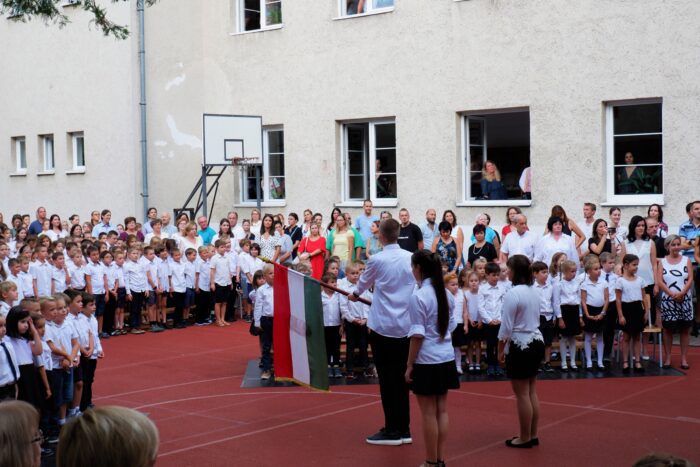The Progressive Post
Towards a European Education Union

The future of Europe depends on how decision-makers manage to raise the profile of educational policies in the design of their recovery plans. The Covid-19 crisis has shown the weaknesses of our education systems and the growing need for a common European response, designed to prepare our societies for future challenges. A European Education Area was launched a few years ago, but the current situation highlights the need for a step further: a true European Education Union.
More than 1.6 billion learners in more than 190 countries, representing 94 per cent of the global learner population, were affected by the closure of educational and training institutions at the height of the Covid-19 crisis. The same story played out across formal and non-formal education settings: crèches, preschools, vocational education, training colleges, universities, youth clubs and adult education institutions closed their doors and, in many cases, when the infrastructure was available to them, shifted online. Digital education became a necessity, a widespread solution for how to face the lockdown and provide education to as many learners as possible.
The digital challenge
Despite the remarkable creativity of educational establishments, parents, teachers, pupils and NGOs, the rushed digital transition generated important inequalities in terms of access to digital education and the quality of training provided. Even in the high-income countries, ten per cent of schoolchildren were left with no form of learning while some countries, like Romania, had close to 1 million children (a third of the country’s pupils) without access to digital education. Access to quality digital education had become a privilege.
Facing this new reality, EU member states tried to provide national strategies, which have nevertheless led to inconsistent results. The European education landscape has been divided by unequal lockdown practices, and differentiated access to quality devices, tools, and software. Strangely enough, the most used educational apps across Europe were not European-made, while the devices and methods employed for the digitalisation were clearly not adapted to quality educational practices. New and important digital education challenges appeared regarding the management of screen-time for children, the lack of security and data protection of the educational platforms, insufficient teaching skills or the difficulty of digitalising practical and technical classes.
A European Education Area (EEA) has already been under debate for several years – and the EU Commission is expected to announce further steps soon. The EEA should, among other things, make studying and learning abroad easier, and ensure the recognition of higher education qualifications across the EU. But the new reality of online teaching during the pandemic has underlined the need for a further bold step of integration: a common European approach to digital education. The Commission has been put under pressure by the European Parliament to accelerate the revision of the Digital Education Action Plan and to launch new and practical initiatives designed to help member states, such as the e-twinning programme enabling online exchanges of best practice, which has proved to be successful. At the same time, the European legislature has initiated its own initiative report, defending a European approach towards an inclusive and qualitative digital education transformation. At the request of the S&D Group in the European Parliament, a strong resolution for more investment in education and the acceleration of the implementation of the European Education Area has been approved.
No success without investment
One of the key proposals from the S&D Group in the European Parliament was to ask member states to allocate at least ten per cent of their recovery plans to education. The amendment was approved by the Parliament but not finally supported by the Council, which was concerned with keeping control on how the EU Recovery and Resilience Facility (RRF) is managed. But the institutional fight continues, and the amendment has been consistently included in several other legislative files. At the same time, the new RRF calls for the allocation of at least 20 per cent for digitalisation, which should include digital education as well as the development of digital skills.
It is all very well to speak about education, but without enough investment, it is hard to have quality education and to adapt our educational systems to the new digital and green requirements. The education strategies that have recently been presented by the European Commission lack a clear and integrated plan with defined milestones to deliver an increase in digital skills at European level and a fair distribution of these skills all over the EU. It is crucial to avoid the mistakes of the previous Digital Education Action Plan, which was even not fully implemented.
Education is a complex topic leading to much passion and many opinions, but I am a strong supporter of a European approach towards education. Not to eliminate the differences or oblige the top-ranked education systems to stop their evolution, but to accelerate synergies, to foster cooperation, recognise diplomas, fight against inequalities, learn from each other and develop new tools, methods and projects together.
Towards a European Education Union
Instead of having isolated calls for projects and actions, the European Union should focus, as a first step, on completing the European Education Area that is already envisaged. We should integrate better education in the European semester. A specific assessment of national education policies and the implementation of EU strategies could enable us to build a common European education ecosystem and develop new EU-wide digital initiatives. Such an ecosystem, which is already partially envisaged through the creation of Digital Education Hubs, implies an active involvement of relevant stakeholders and actors, European innovators in the field, educational institutions and key decision makers. Projects like the Erasmus programme which enables mobility, the European University framework, with the European Parliament’s newly proposed online dimension, or the DiscoverEU programme are uniting us even further and showing the strength of being together in our own particular diversity.
It is key to adapt to future challenges, and our political family strongly supports investing more in new Artificial Intelligence (AI) and robotics initiatives that are designed to increase the level of education on these topics. We also strongly support developing Green Education at the same time, teaching future generations about the importance of protecting the environment and how to search for alternative solutions to reduce environmental damage. Against the backdrop of the debate about European resilience, true citizenship education is needed, and ways should be devised for teaching and learning more about our rights and duties at the European level. I therefore support the call for the creation of an EU agency for Citizenship Education, designed to foster synergies in the field and to increase the level of understanding of the European Union.
Our progressive family needs to bring the issue of education to the centre of the debate about the future of Europe. There are so many things we could do together. The coronavirus pandemic has shown the weaknesses of our education systems and it has clearly shown that many new challenges cannot be dealt with only at the national or local level. It is time to raise the bar, to reconsider education as a true investment, not as a cost, and to aim for more. We need a true European Education Union, building on the common legal framework of the European Education Area, but going far beyond that: a strong European education ecosystem, but also a European community of shared practice, strategies, targets, and actions in the field of education. Working together at the European level on education would not mean to erase our differences or to affect the principle of subsidiarity, but would imply developing common European policies and tools that could enable us to meet our targets at the European level, knowing that the single market requires common answers and actions. The upcoming Social Summit in Porto and the expected Council recommendations on education are the key moments to start this debate and to fix strong and specific targets for the future of European education.
Related articles:
- A rethink of EU education policies, by Jernej Pikalo
- Implementing the European Skills Agenda, by Siria Taurelli
- Towards a European Education Union, by Victor Negrescu
- First years last forever, by Maria Herczog




